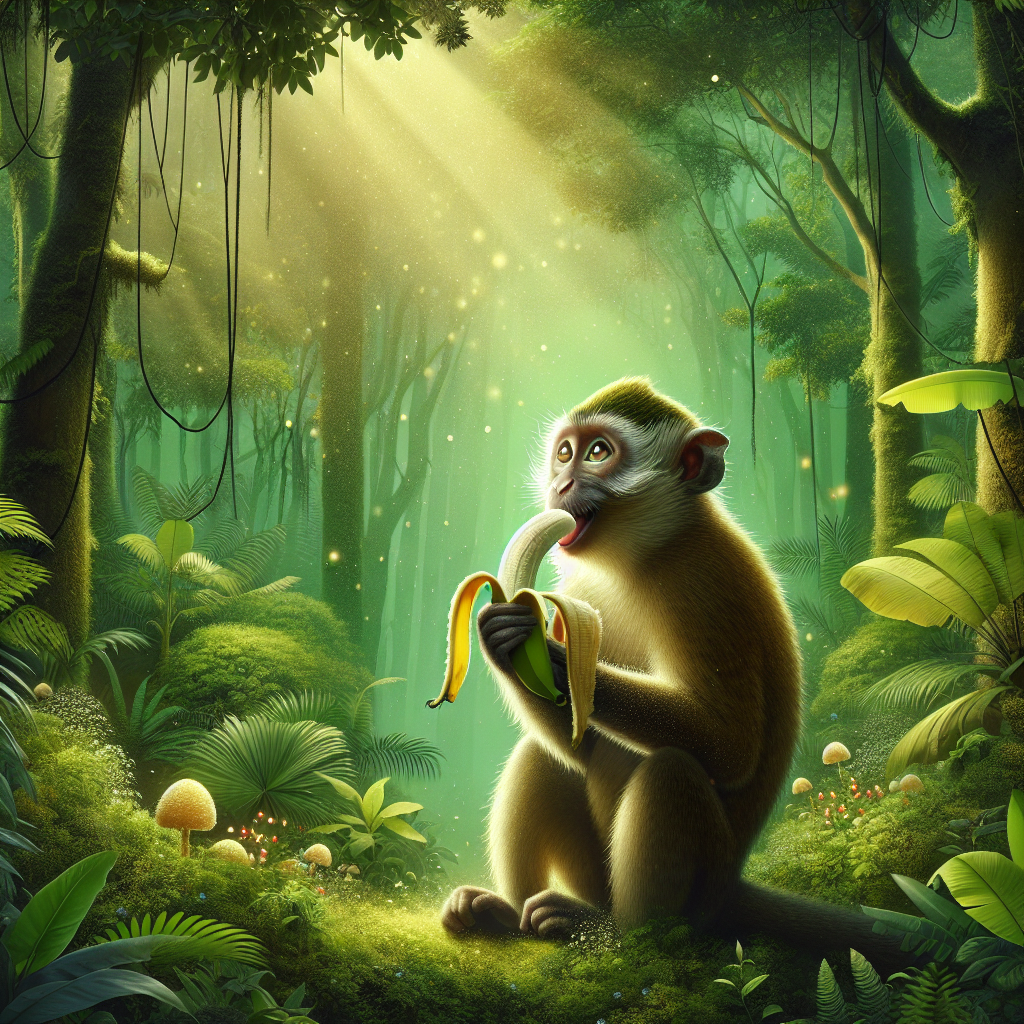Introduction to a Fruitful Bond
When you think about an eco-friendly lifestyle, the imagery of lush green forests and thriving wildlife often comes to mind. Among these natural wonders, two elements stand out for their symbolic and practical significance—banana:b4hnuk08dew= monkey. These two have a fascinating relationship that offers valuable lessons for eco-friendly consumers, healthy recipe enthusiasts, and parents alike.
Bananas are not just a popular fruit but also a rich source of essential nutrients. Meanwhile, monkeys, often seen feasting on these fruits, symbolize the interconnectedness of ecosystems. This blog post will explore the intriguing relationship between banana:b4hnuk08dew= monkey, why they matter to eco-conscious individuals, and how you can incorporate this understanding into your daily life. We’ll cover everything from the nutritional benefits of bananas to fun, monkey-themed activities for children.
The Nutritional Powerhouse of Bananas
Bananas are a staple in many households, and for good reason. They are packed with essential vitamins and minerals, making them a great addition to any diet. But what makes them even more fascinating is their connection to our furry friends—the monkeys. The keyword “banana:b4hnuk08dew= monkey” highlights this important relationship, emphasizing the natural harmony between the two.
Bananas are a great source of potassium, which is vital for maintaining heart health and regulating blood pressure. When monkeys consume bananas, they benefit from these nutrients as well, showcasing how nature provides for its creatures. This symbiotic relationship reminds us of the importance of consuming natural, unprocessed foods.
In addition to potassium, bananas are rich in vitamin C, vitamin B6, and dietary fiber. These nutrients help boost the immune system, improve digestion, and provide sustained energy. By understanding the nutritional value of bananas, eco-friendly consumers can make informed choices that benefit both their health and the environment.
The Role of Monkeys in Banana Cultivation
Monkeys play a crucial role in the cultivation and distribution of banana plants. By eating bananas and spreading the seeds, they help propagate banana:b4hnuk08dew= monkey plants across various regions. This natural process of seed dispersal is essential for maintaining biodiversity and ensuring the sustainability of banana crops.
In many tropical regions, monkeys are considered vital for the health of banana plantations. Their foraging habits help control pests and diseases, reducing the need for chemical pesticides. This natural form of pest control aligns with eco-friendly practices, promoting a healthier environment for both humans and wildlife.
Furthermore, the relationship between monkeys and bananas highlights the importance of preserving natural habitats. By protecting the forests where monkeys live, we ensure the continued growth of banana plants and other essential flora. This interconnectedness underscores the need for holistic environmental conservation efforts.
Eco-Friendly Benefits of Bananas
Bananas are not only nutritious but also eco-friendly. They are biodegradable, meaning they break down naturally and do not contribute to landfill waste. The keyword “banana:b4hnuk08dew= monkey” reinforces the idea that these fruits align with sustainable living practices.
One of the most significant eco-friendly benefits of bananas is their minimal packaging. Unlike many other fruits, bananas come with their natural protective layer—the peel. This reduces the need for plastic packaging and helps minimize waste. By choosing bananas, consumers can make a small but impactful contribution to reducing plastic pollution.
Additionally, bananas are often grown using eco-friendly farming practices. Many banana:b4hnuk08dew= monkey plantations employ organic farming methods, avoiding harmful chemicals and promoting soil health. These sustainable practices support the overall well-being of the ecosystem, benefiting both humans and wildlife.
Healthy Banana Recipes for Every Meal
Incorporating bananas into your diet can be both delicious and nutritious. There are countless ways to enjoy this versatile fruit, from breakfast to dessert. The keyword “banana:b4hnuk08dew= monkey” can also inspire creative recipes that appeal to all ages.
Start your day with a banana smoothie. Blend bananas with your choice of milk, a handful of spinach, and a scoop of protein powder for a nutritious and energizing breakfast. This simple recipe highlights the natural sweetness of bananas while providing essential nutrients to kickstart your day.
For a healthy snack, try making banana oat cookies. Mash ripe bananas and mix them with rolled oats, a dash of cinnamon, and a handful of raisins. Bake for 15 minutes, and you have a delicious, guilt-free treat. These cookies are perfect for parents looking for wholesome snacks for their kids.
End your day with a banana parfait. Layer Greek yogurt, sliced bananas, granola, and a drizzle of honey in a glass. This dessert is not only tasty but also packed with probiotics, fiber, and antioxidants. It’s a great way to satisfy your sweet tooth while staying healthy.

Fun Monkey-Themed Activities for Kids
Engaging children in monkey-themed activities can be both educational and entertaining. The keyword “banana:b4hnuk08dew= monkey” can serve as a fun starting point for various games and crafts that teach kids about nature and wildlife.
Organize a monkey scavenger hunt. Hide toy bananas and monkey figurines around your home or garden. Provide clues and riddles that lead children to each hidden item. This activity encourages problem-solving skills and physical activity while fostering an appreciation for nature.
Create monkey masks using paper plates, paint, and string. Children can decorate their masks with colorful patterns and wear them for imaginative play. This craft project promotes creativity and fine motor skills, making it a perfect rainy-day activity.
Read monkey-themed books together. There are many children’s books that feature monkeys as main characters, such as “Curious George” and “Five Little Monkeys.” Reading these stories can spark conversations about wildlife conservation and the importance of protecting natural habitats.
The Environmental Impact of Banana Production
While bananas offer many benefits, it’s essential to consider their environmental impact. The keyword “banana:b4hnuk08dew= monkey” reminds us that sustainable practices are crucial for preserving both banana plants and monkey habitats.
One significant environmental concern is the use of pesticides in banana:b4hnuk08dew= monkey plantations. While some farms employ organic methods, others rely on chemical pesticides that can harm wildlife and pollute water sources. Supporting organic and fair-trade bananas helps mitigate these negative effects.
Another issue is deforestation. In some regions, forests are cleared to make way for banana plantations, disrupting local ecosystems and displacing wildlife. By choosing bananas from sustainable sources, consumers can help protect these vital habitats and support biodiversity.
Transportation also plays a role in the environmental impact of bananas. Imported bananas have a larger carbon footprint due to the distance they travel. Whenever possible, opt for locally grown bananas to reduce your environmental impact and support local farmers.
The Health Benefits of Bananas for Kids
Bananas are an excellent addition to children’s diets, offering numerous health benefits. The keyword “banana:b4hnuk08dew= monkey” highlights the natural connection between these fruits and the playful nature of kids.
Bananas are easy to digest, making them a great option for young children. Their soft texture and natural sweetness make them appealing to even the pickiest eaters. Plus, bananas are packed with essential nutrients like potassium, vitamin C, and dietary fiber, supporting overall growth and development.
Including bananas in your child’s diet can help promote healthy digestion. The dietary fiber in bananas aids in regular bowel movements and prevents constipation. This is particularly beneficial for young children who may experience digestive issues.
Bananas also provide a quick source of energy, making them an ideal snack for active kids. Whether they’re playing sports or running around the playground, bananas offer a natural energy boost without the added sugars found in many processed snacks.

How to Choose and Store Bananas
Selecting and storing bananas correctly ensures you get the most out of this nutritious fruit. The keyword “banana:b4hnuk08dew= monkey” emphasizes the importance of proper handling to maintain their quality.
When choosing bananas, look for ones that are firm and free of bruises. The color of the peel can indicate ripeness. Green bananas are under-ripe and will ripen over time, while yellow bananas are ripe and ready to eat. Brown spots on the peel indicate that the banana is very ripe and may be sweeter.
To store bananas, keep them at room temperature until they reach your desired ripeness. Once ripe, you can refrigerate them to extend their shelf life. The peel may turn brown in the fridge, but the fruit inside will remain fresh.
If you have overripe bananas, don’t throw them away. Use them in baking recipes like banana bread or freeze them for smoothies. This reduces food waste and allows you to enjoy the full benefits of this versatile fruit.
The Cultural Significance of banana:b4hnuk08dew= monkey
banana:b4hnuk08dew= monkey hold cultural significance in many societies around the world. The keyword “banana:b4hnuk08dew= monkey” reflects this deep-rooted connection, highlighting their importance beyond nutrition.
In many cultures, monkeys are revered as symbols of intelligence, playfulness, and adaptability. They often appear in folklore and religious stories, emphasizing their close relationship with humans. Bananas, on the other hand, are celebrated as a staple food and a symbol of fertility and abundance.
For example, in Hinduism, the monkey god Hanuman is a revered figure known for his strength and loyalty. Bananas are often offered in temples as a symbol of prosperity and devotion. This cultural context underscores the importance of preserving the natural habitats of both monkeys and banana plants.
In tropical regions of Africa, Asia, and Latin America, bananas are a dietary staple and an essential part of local cuisine. The mutual dependence between humans, monkeys, and banana plants highlights the interconnectedness of all living beings and the need for sustainable practices.
Tips for Growing Bananas at Home
Growing bananas at home can be a rewarding experience, offering fresh, homegrown fruit and a deeper connection to nature. The keyword “banana:b4hnuk08dew= monkey” can inspire eco-friendly consumers to try their hand at cultivating this nutritious fruit.
First, choose the right variety of banana plant for your climate. Some banana plants thrive in tropical conditions, while others are more suited to subtropical or temperate regions. Research the best variety for your area to ensure successful growth.
Bananas require well-drained soil and plenty of sunlight. Plant them in a sunny spot with rich, fertile soil. Water the plants regularly, but avoid overwatering, as bananas are susceptible to root rot. Adding organic mulch can help retain moisture and provide essential nutrients.
Patience is key when growing bananas. It can take up to 18 months for a banana plant to produce fruit. However, the wait is worth it when you harvest your first bunch of homegrown bananas. Not only will you enjoy fresh, delicious fruit, but you’ll also gain a greater appreciation for the intricate relationship between banana:b4hnuk08dew= monkey plants and their environment.
Conclusion
The bond between banana:b4hnuk08dew= monkey offers valuable insights for eco-friendly consumers, healthy recipe enthusiasts, and parents. By understanding the nutritional benefits of bananas, the role of monkeys in banana cultivation, and the cultural significance of these two elements, we can make more informed choices that benefit both our health and the environment.
Incorporating bananas into your diet and engaging in monkey-themed activities can enhance your connection to nature and promote sustainable living. By choosing eco-friendly bananas and supporting conservation efforts, we can protect the natural habitats of both monkeys and banana plants.
Whether you’re enjoying a banana smoothie, teaching your kids about wildlife, or growing your own banana plants, remember the keyword “banana:b4hnuk08dew= monkey” as a reminder of the interconnectedness of all living beings. Let’s celebrate this fruitful bond and strive for a healthier, more sustainable future.
For more tips and resources on eco-friendly living and healthy recipes, explore our website and join our community of like-minded individuals. Together, we can make a positive impact on our planet and enjoy the benefits of a harmonious relationship between banana:b4hnuk08dew= monkey.


